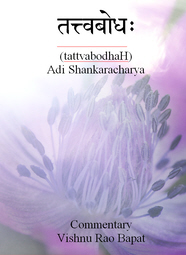Q: In your writings you use quite often the word ‘Enlightenment’. In ‘Back to the truth: 5000 years of Advaita’ you give the following definition of “Enlightenment”:
“Enlightenment is a sudden recognition that non-duality is, has always been, and will always be the reality of our experience”
and further you explain:
“[…] it refers to the transition from the position of believing oneself to be a person – body, mind etc. as described earlier – to the position of knowing, that there is only the non-dual Self […]”
This is probably a pretty good definition, however the words ‘recognition’ and ‘knowledge’ here can be easily misunderstood.
‘Knowledge’, in the view of most people, including most of the spiritual aspirants, is a kind of intellectual knowledge or insight. As a result these people hearing the Advaitic non-dual doctrine usually just add to their ideas a new one: ‘I am non-dual Self, I am Brahman’, thinking that this is the required knowledge (or recognition) they have missed so far and that this is the Enlightenment.
Moreover, the term ‘Enlightenment’ is used by many religious/spiritual traditions/movements and is differently defined/interpreted by them; in fact there is a wide range of interpretations/definitions of the word ‘Enlightenment’. Further, many claim that there are stages of ‘Enlightenment’, saying that that there can be a deep or shallow enlightenment, full or partial.
Advaita defines ‘knowledge’ or ‘true knowledge’ differently and according to Advaita such an intellectual knowledge or mental recognition of non-dual truth is not the true knowledge at all. So such an ‘Enlightenment’ has relatively little value in Advaita spiritual system, being seen just as an intellectual understanding of the non-dual truth. From this point there is still a long way to the authentic realization of the truth, called ‘true knowledge’.
Taking all that into account I am rather against using the term ‘Enlightenment’ in the context of authentic Advaita teaching. In my view it doesn’t bring much clarity, confusing many. Why not use original Advaitin terms, which are meaningful, concrete, almost free of misconceptions and leave little room for interpretations?
Would you please explain if the term ‘Enlightenment’ has any origin in traditional Advaitic texts? Which ones, please give the exact examples. What is the original Sanskrit word which is translated into English as ‘Enlightenment’? Continue reading →

